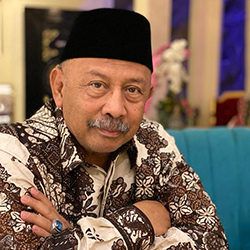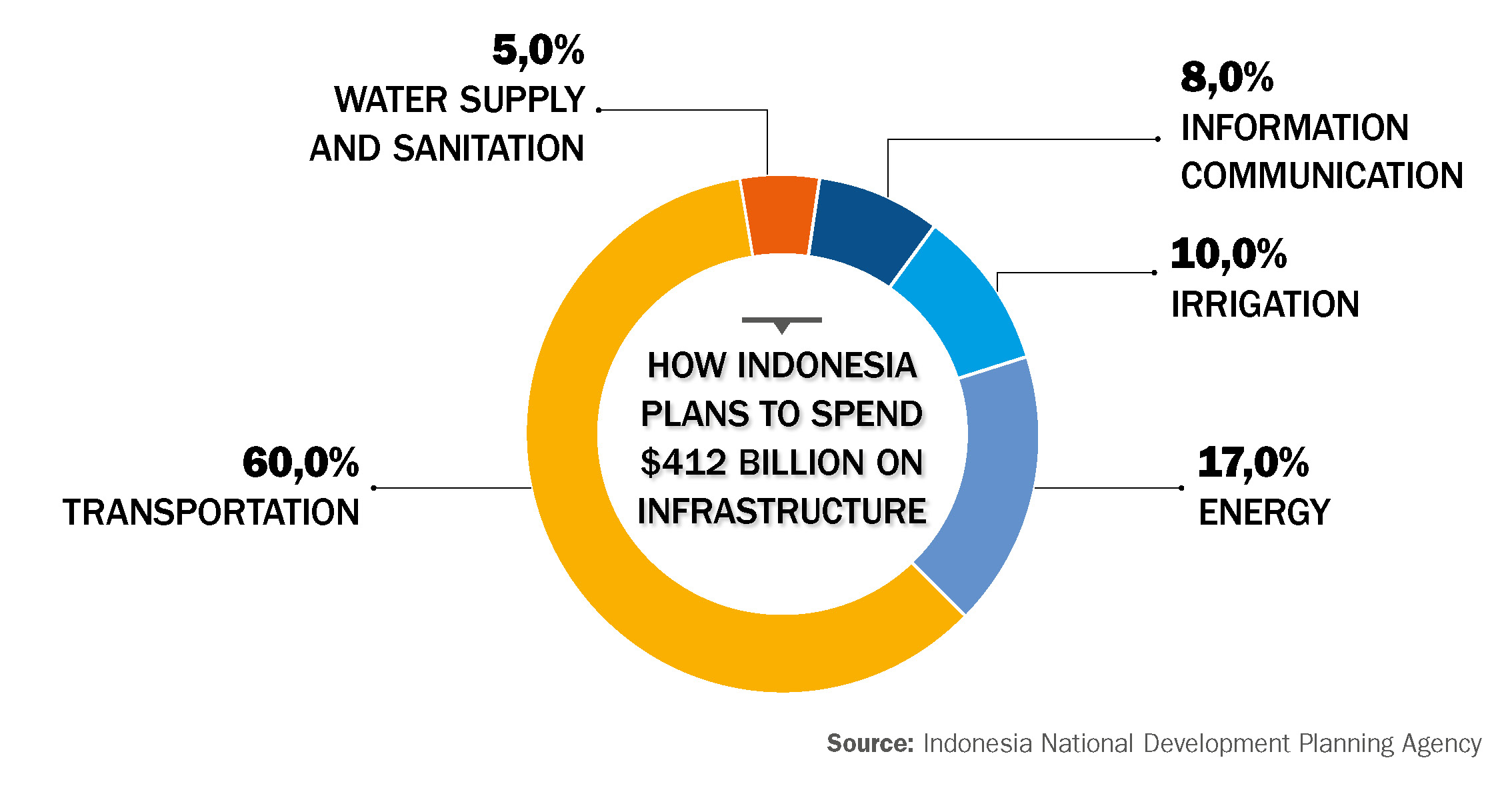Through an exceptional friendship, Indonesia and the UAE are prioritizing a new political alliance that will spur massive development deals
In September 2015, near the end of his first year serving as Indonesia’s leader, President Joko Widodo embarked on a five-day Middle East tour that would redefine regional relations. One of the stops on that tour was Abu Dhabi, where President “Jokowi” first officially met His Highness Sheikh Mohammed bin Zayed Al Nahyan, Crown Prince of Abu Dhabi and Deputy Supreme Commander of the UAE Armed Forces. The moment was prophetic, setting off a chain of events that have brought the UAE and Indonesia closer than ever before.

Since that first meeting, the two rulers have developed a rare friendship, one that takes the usual starchy world of high-level diplomacy to a more personal level. The leaders appeared to quickly develop a sense of intimacy, as exemplified by Sheikh Mohamed’s decision to invite Jokowi to lunch with him at a public venue.
According to Coordinating Maritime Affairs and Investment Minister Luhut Pandjaitan, the Indonesian cabinet official closest to the blossoming relationship, the two leaders have come to refer to one another as “brothers.” During President Jokowi’s visit, Sheikh Mohamed gifted Indonesia with a mosque as a “token of their brotherhood.”
Indonesia’s historic infrastructure program, including 25 airports and new power plants, from 2020 to 2024
The UAE’s initial investment in Indonesia’s new sovereign wealth
Indonesia’s defence budget for 2020, a year-on-year increase of 20%
Bali has long been the most popular Indonesian tourism destination for UAE visitors, but other destinations have started to draw more attention. In particular, the island of Lombok has seen growing visitor interest from the UAE over the past three years.
Located a four- to five-hour ferry ride east from Bali, Lombok is a predominantly Muslim island. Compared to Bali, with a majority Hindu population, it naturally offers more halal food and tourism options for UAE visitors. Besides the coral reefs and sea turtle cruises offered on Gili Islands, a chain of three islands on Lombok’s northwest coast, the island is also famed for Mount Rinjani, Indonesia’s second-highest active volcano that stands 3,726 meters tall.
That the official missions and personal politics of these two powerful men intersect make this exceptional cordiality more likely. Both leaders are considered moderates, preferring to oppose the influence of political Islam. They are also both vocal advocates in combating terrorism.

For Sheikh Mohamed, there is a strong desire to diversify his economy and further develop the UAE as a global trade and logistics hub, goals that the world’s largest Muslim country, Indonesia, with its vast natural resources, can contribute to through with major investment opportunities. For President Jokowi, finding partners and funding to help materialize an ambitious $412 billion infrastructure plan, as well as the construction of a new capital for Indonesia seemed to naturally bring him to the UAE.
Indonesia becomes one of the first nations to recognize the UAE upon its independence
Official diplomatic ties between Indonesia and the UAE begin
Indonesian President Muhammad Suharto makes first official visit to the UAE, followed by the opening of the Abu Dhabi embassy
Sheikh Zayed bin Sultan Al Nahyan makes first official visit to Indonesia, followed by the opening of the Jakarta embassy
President Joko Widodo conducts his first official visit to the UAE, setting a new course for relations
Abu Dhabi Crown Prince Mohammed Bin Zayed Al Nahyan makes first official visit to Jakarta, resulting in 12 deals worth $9.7 billion
To steer this new course, the UAE has injected $6.8 billion into Indonesia’s new sovereign wealth fund to support critical development projects, including the nation’s new capital in East Kalimantan. Moreover, Emirati companies are now actively pursuing joint ventures in projects in the ICT and defense sectors, the latter of which President Jokowi has allocated $9.6 billion, a 20% boost from last year’s budget.
There is reason to believe these deals will materialize as planned. After their meeting in Abu Dhabi last January, when the historic $23 billion deal was signed, Sheikh Mohamed offered to build Indonesia a mosque. To show he meant what he said, a few days later Abu Dhabi’s $232 billion Mubadala wealth fund sent officials to scout construction sites. Such readiness to pursue agreements is foretelling.
Overcrowded and sinking, Jakarta is no longer suitable as Indonesia’s capital. While plans to move the capital have long been discussed, President Joko Widodo has now moulded a $34 billion vision into shape. During his landmark visit to Abu Dhabi last January, President Widodo took a gambit, inviting His Highness Sheikh Mohammed bin Zayed Al Nahyan, Crown Prince of Abu Dhabi and Deputy Supreme Commander of the UAE Armed Forces to chair a panel to oversee construction of the new capital, locally called Ibu Kota Negara (IKN).
The crown prince readily accepted and will lead a committee to develop a smart city built upon green technology infrastructure. Blueprints put IKN in Borneo’s East Kalimantan province, between Samarinda City and the port city of Balikpapan.